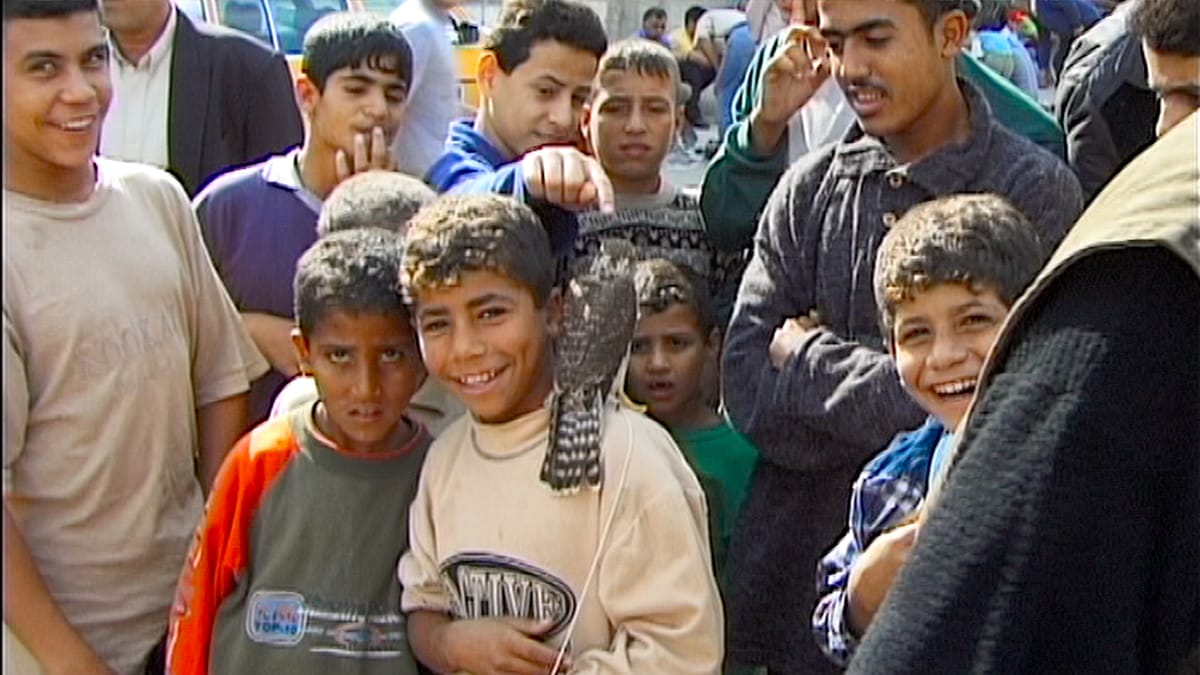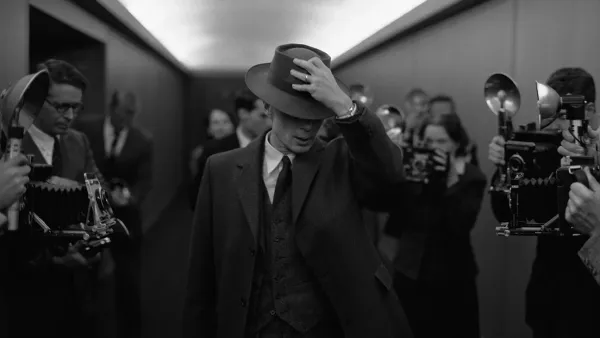With Hasan in Gaza | TIFF50
A world of resistance behind the lens.

With Hasan in Gaza embodies an act of resistance, of documenting that which the occupying power is trying desperately to erase.
Throughout the film you see numerous children, multiple times, come up to Kamal Aljafari's (dir.) camera saying "Film me!", "Take a picture of me!" As the children say these words, and in the moments in between, they stare into the camera with the world behind their eyes. Seeking to be witnessed, to be seen.
With Hasan in Gaza follows Aljafari as he seeks to find his friend with whom he was unjustifiably imprisoned back in 1989. The film is made up of a collection of recently rediscovered footage filmed by Aljafari in Gaza in November 2001. Aljafari frames the impetus of the film around this premise, however the film itself takes a different shape as he goes on an unexpected journey throughout Gaza with his guide, Hasan. Rather than a straightforward narrative of a man seeking his friend, it is a collection of moments, images, stories illustrating both the joys and fears that Gazans face on a daily basis.
Friends gathering, children laughing, bullets ricocheting, shrapnel strewn. Beauty in opposition of violence. A beautiful sunset foregrounded by metal fences. All of this exists at once through Aljafari's camera, showing the reality of living under occupation.
As I watched, the parallels with the current reality were crystal clear. The images were near mirror to the videos I see on my feed from Gaza in 2025, nearly two years into the newest iteration of Israel's genocide of the Palestinian people. It is a stark reminder that this isn't new. That from 2025, to 2001, to 1948, Palestinians have been facing occupation.
I couldn't help but think, where are the children on the other side of Aljafari's lens now? Are they still alive? If so, have they continued to experience childlike joy? Or has that been marred by all that they have witnessed? Do they experience both? My heart broke because even while I don't know the fates of those in this film, I know the fates of thousands of other Palestinian children just like them.
Throughout the film the occupying forces were omnipresent. There are moments where you can hear their voices, their bullets, their missiles, their tanks - but you can't see their faces. The oppressive nature of their violence is underlying the entire film, even in the moments of joy, placing you into just a fraction of the experience of a Palestinian in Gaza.
While the film can be slow moving at times, it still feels like an important watch. At once quiet and unassuming, and at another confronting and moving, With Hasan in Gaza has more to it than may initially meet the eye - you just need to take the time to witness what's underneath. When you take a moment, you see both beauty and pain, fear and joy, hope and despair, a dichotomy of experiences presented throughout this film. With Hasan in Gaza calls for continued documentation and witnessing in the face of attempted erasure, and for that reason it is an important watch.




